Abstract
Rats fed a diet high in potassium for several days survive an acute load of potassium that is lethal to animals on a regular diet. Previous data suggested that this survival occurred because of enhanced kaluresis.
Although increased urinary excretion may occur, the major mechanism of this potassium adaptation phenomenon has been found to be extrarenal. Despite nephrectomy just before study, rats previously fed a high potassium diet maintained lower plasma potassium concentrations for at least 2 hr after an acute potassium load than did rats fed a regular diet.
Prior adrenalectomy abolished adaptation. Furthermore, rats fed a low sodium diet as an alternative stimulus to aldosterone secretion demonstrated adaptation to potassium loading, as did adrenalecomized rats given large doses of deoxycorticosterone for several days. Adrenalectomy just before the test load of potassium did not abolish adaptation nor did a large dose of aldosterone at that time reproduce it. These data indicate that adaptation is dependent on a chronic increase in aldosterone secretion.
The extra potassium removed from the extracellular fluid by adapted rats was not lost into the gastrointestinal tract. It is concluded that more rapid lowering of plasma potassium after acute potassium loads by adapted rats is due to enhanced uptake of potassium by one or more tissues stimulated by chronic aldosteronism.
Full text
PDF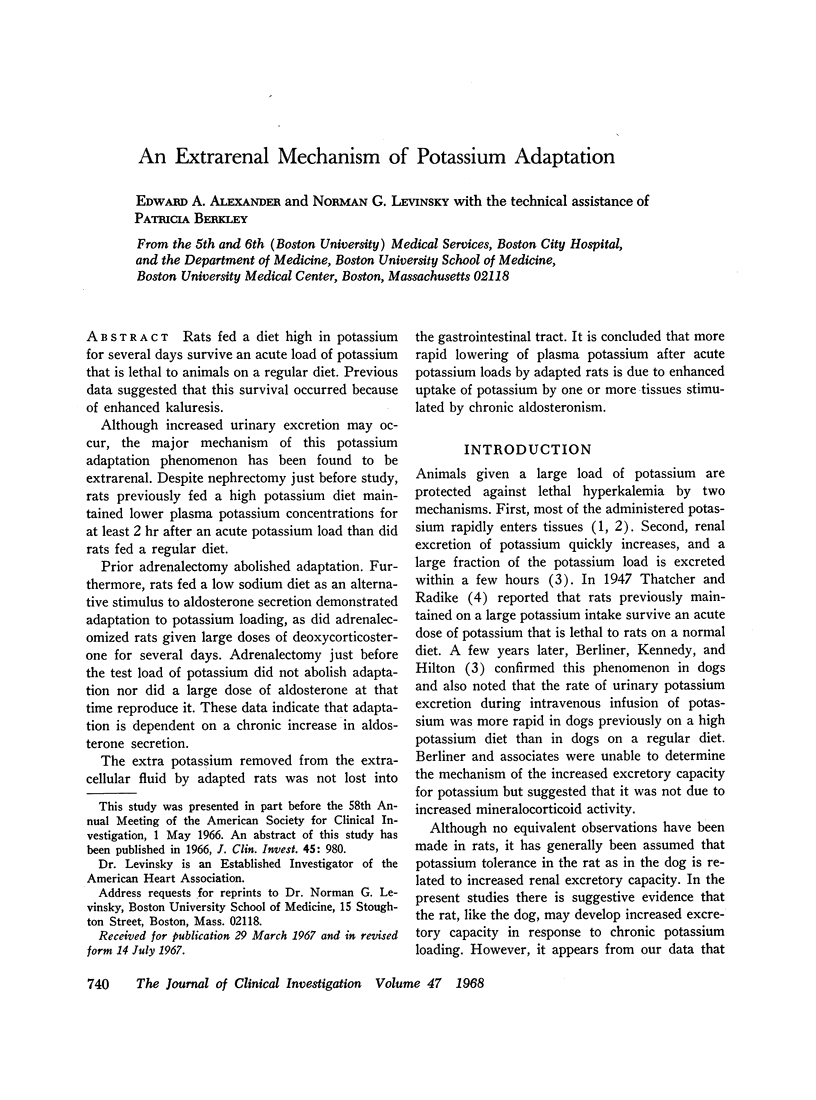
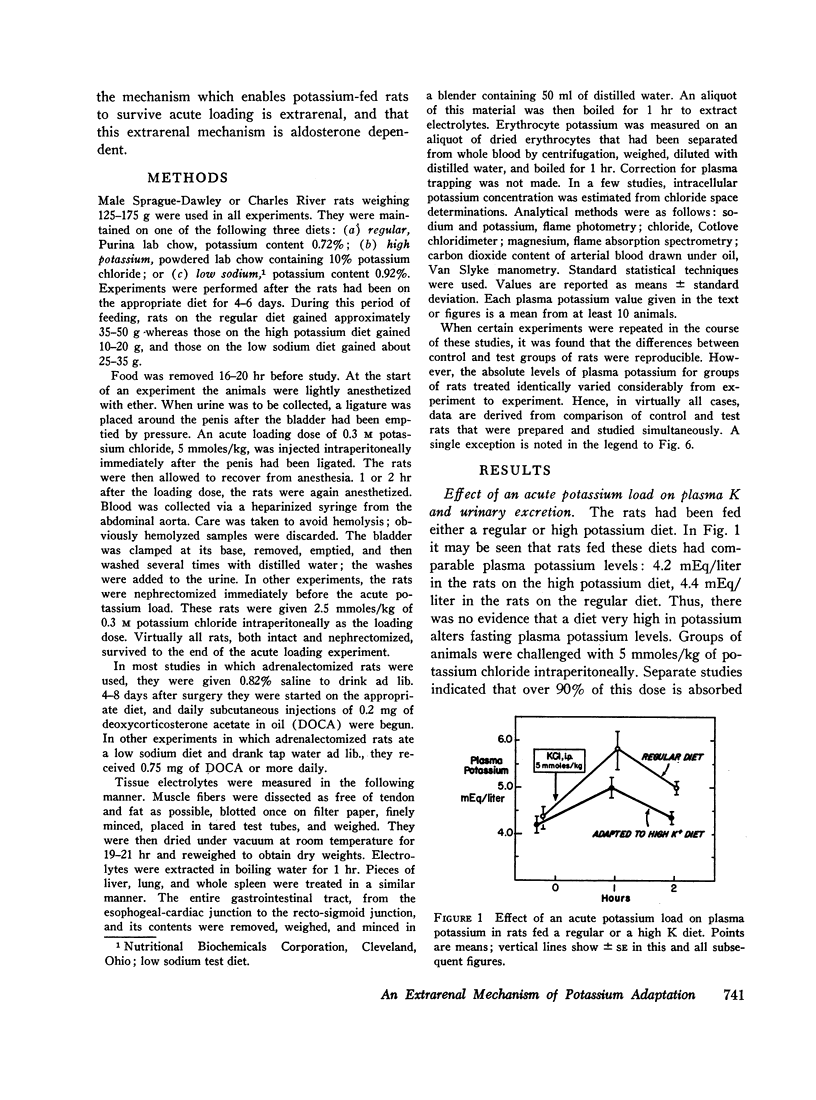
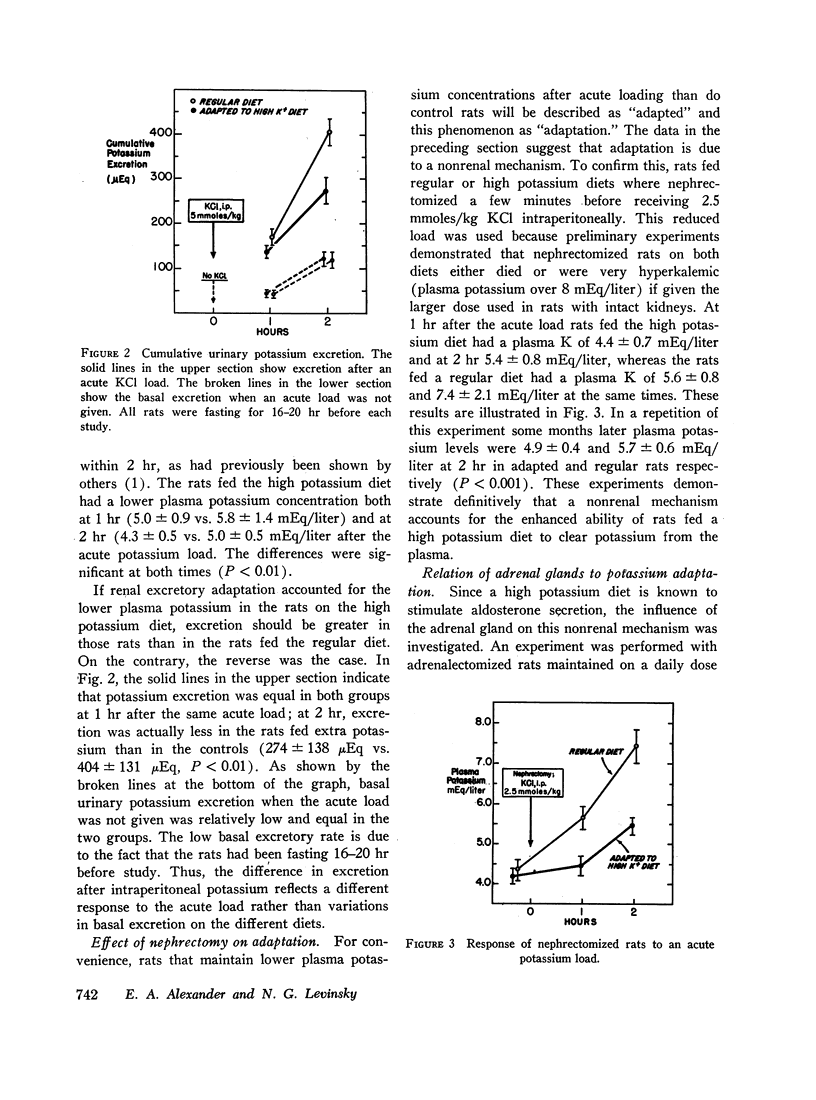
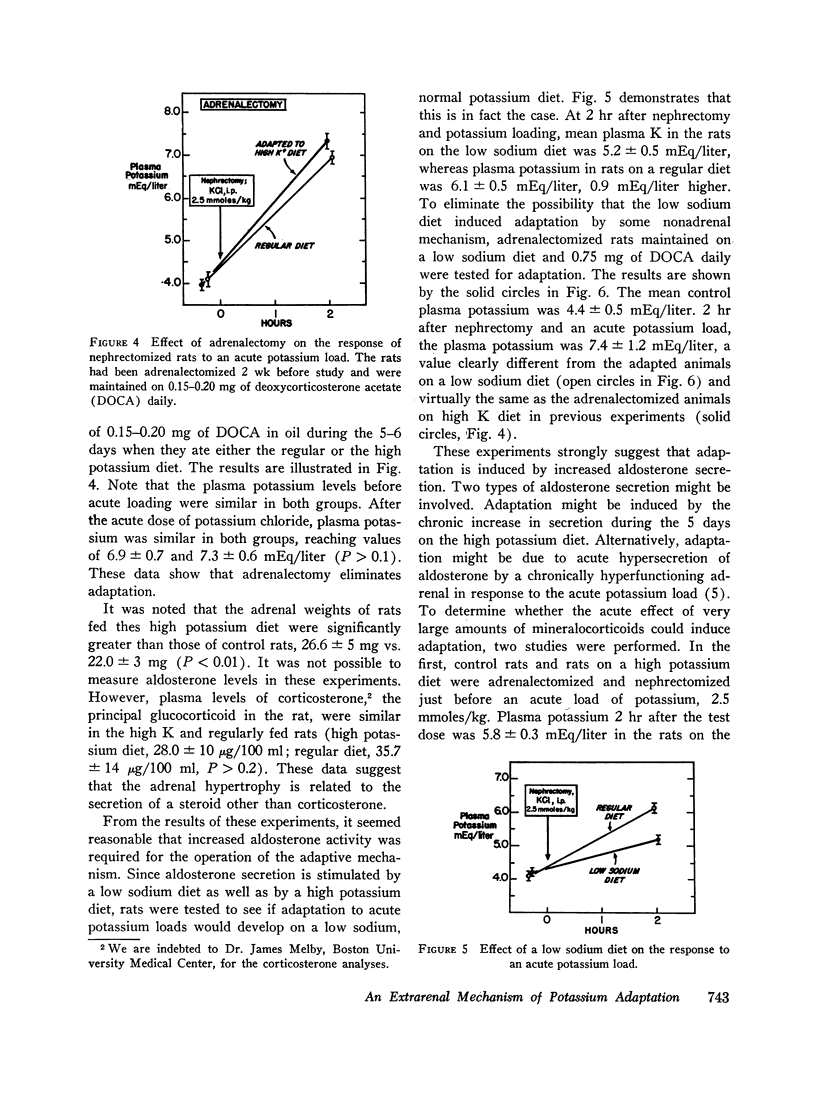
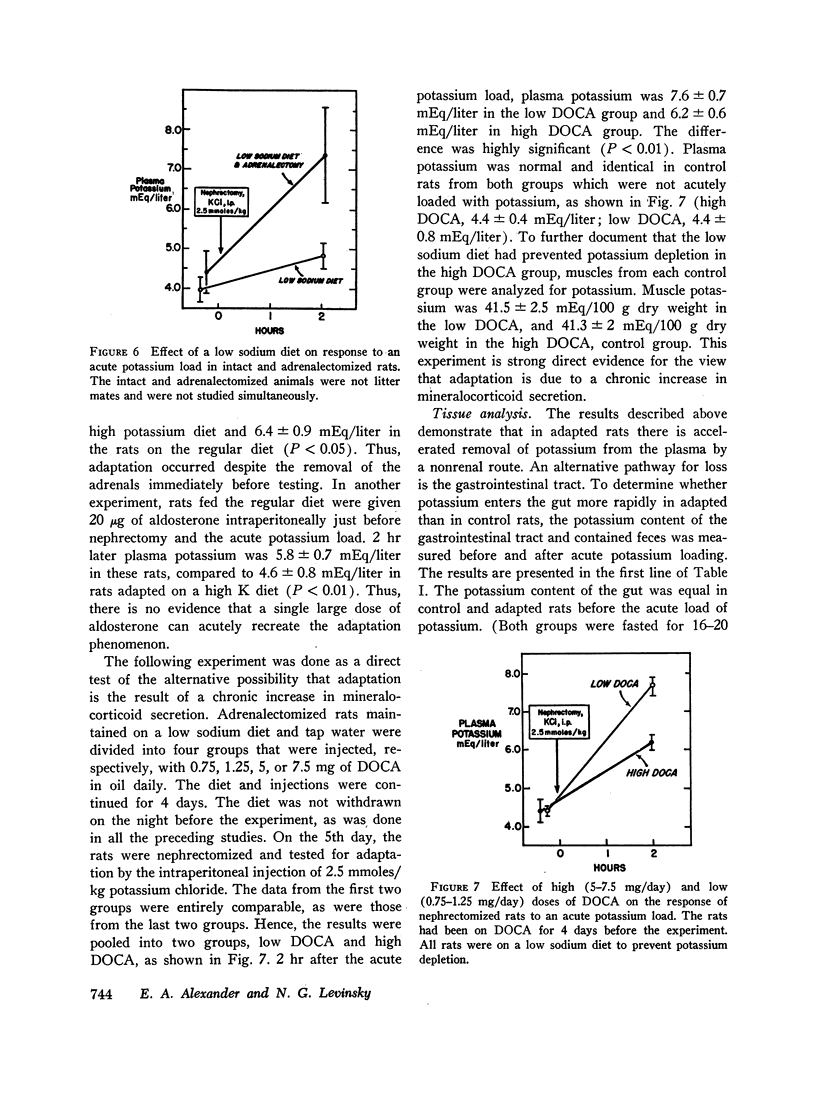
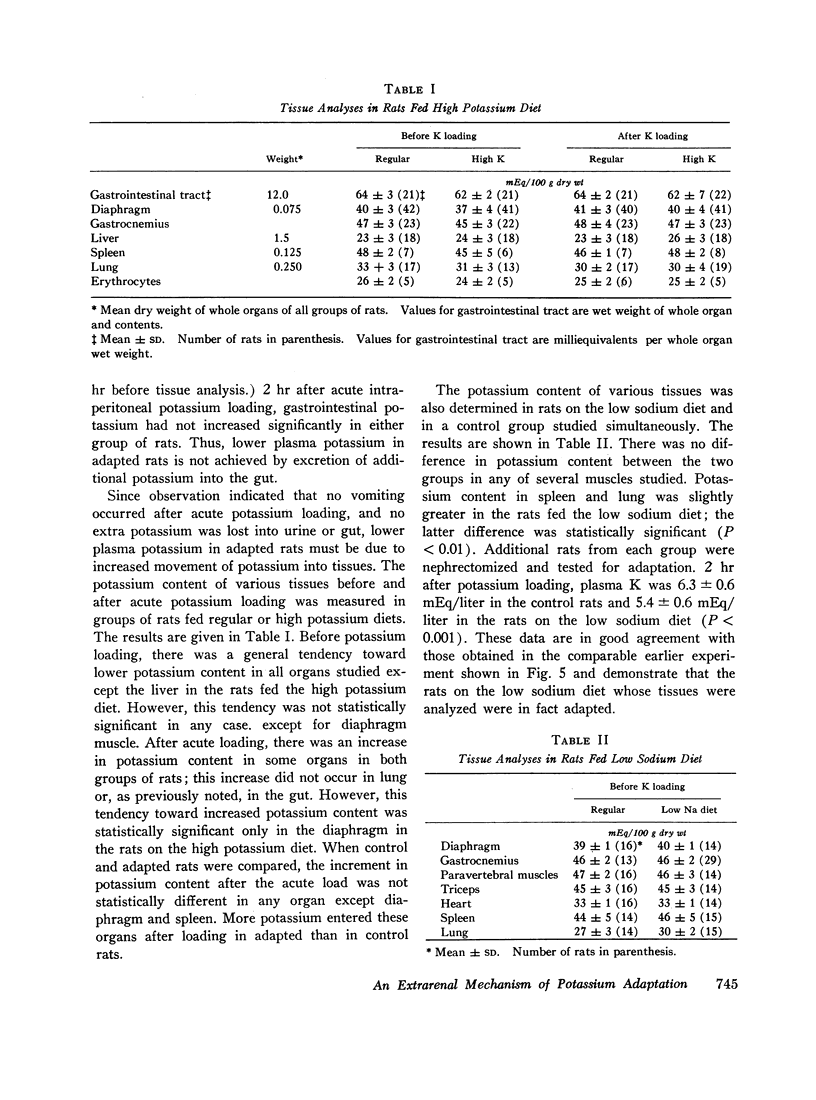
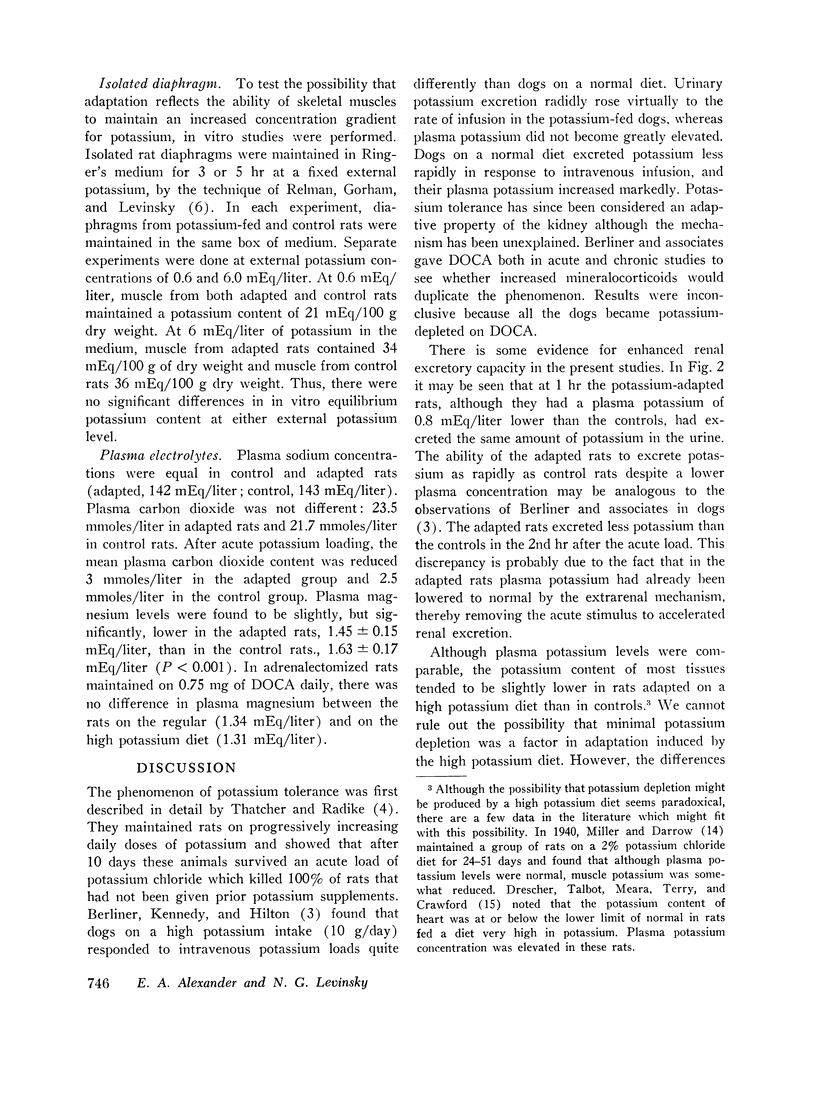
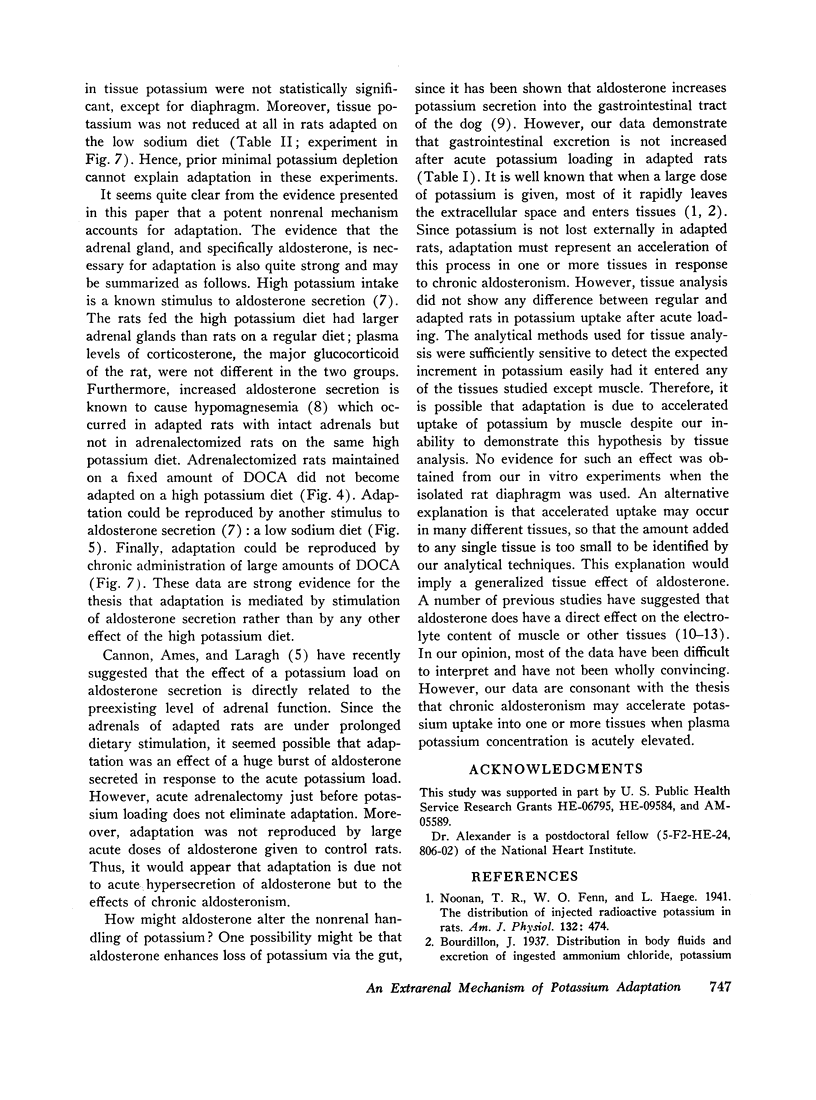
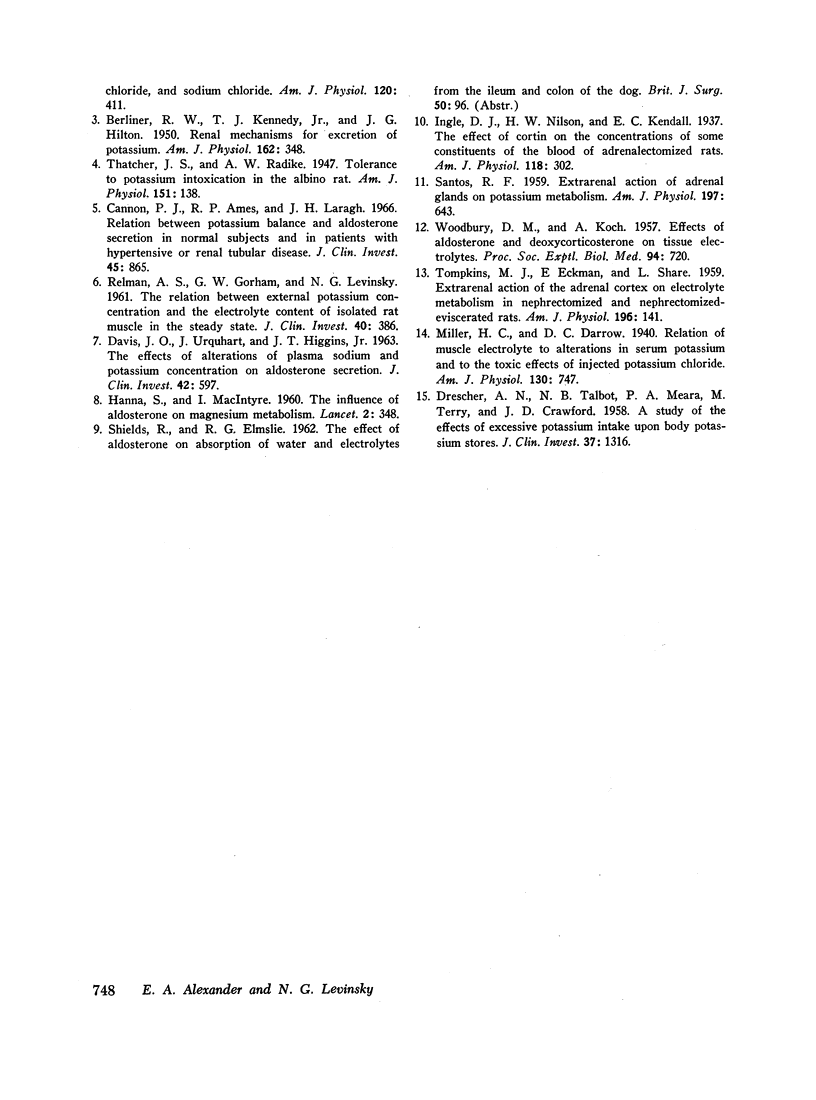
Selected References
These references are in PubMed. This may not be the complete list of references from this article.
- BERLINER R. W., KENNEDY T. J., Jr, HILTON J. G. Renal mechanisms for excretion of potassium. Am J Physiol. 1950 Aug 1;162(2):348–367. doi: 10.1152/ajplegacy.1950.162.2.348. [DOI] [PubMed] [Google Scholar]
- Cannon P. J., Ames R. P., Laragh J. H. Relation between potassium balance and aldosterone secretion in normal subjects and in patients with hypertensive or renal tubular disease. J Clin Invest. 1966 Jun;45(6):865–879. doi: 10.1172/JCI105402. [DOI] [PMC free article] [PubMed] [Google Scholar]
- DAVIS J. O., URQUHART J., HIGGINS J. T., Jr The effects of alteration of plasma sodium and potassium concentration on aldosterone secretion. J Clin Invest. 1963 May;42:597–609. doi: 10.1172/JCI104750. [DOI] [PMC free article] [PubMed] [Google Scholar]
- DRESCHER A. N., TALBOT N. B., MEARA P. A., TERRY M., CRAWFORD J. D. A study of the effects of excessive potassium intake upon body potassium stores. J Clin Invest. 1958 Sep;37(9):1316–1322. doi: 10.1172/JCI103720. [DOI] [PMC free article] [PubMed] [Google Scholar]
- HANNA S., MacINTYRE I. The influence of aldosterone on magnesium metabolism. Lancet. 1960 Aug 13;2(7146):348–350. doi: 10.1016/s0140-6736(60)91487-2. [DOI] [PubMed] [Google Scholar]
- RELMAN A. S., GORHAM G. W., LEVINSKY N. G. The relation between external potassium concentration and the electrolyte content of isolated rat muscle in the steady state. J Clin Invest. 1961 Feb;40:386–393. doi: 10.1172/JCI104265. [DOI] [PMC free article] [PubMed] [Google Scholar]
- SANTOS R. F. Extrarenal action of adrenal glands on potassium metabolism. Am J Physiol. 1959 Sep;197:643–647. doi: 10.1152/ajplegacy.1959.197.3.643. [DOI] [PubMed] [Google Scholar]
- TOMPKINS M. J., ECKMAN E., SHARE L. Extrarenal action of the adrenal cortex on electrolyte metabolism in nephrectomized and nephrectomized-eviscerated rats. Am J Physiol. 1959 Jan;196(1):141–144. doi: 10.1152/ajplegacy.1958.196.1.141. [DOI] [PubMed] [Google Scholar]
- WOODBURY D. M., KOCH A. Effects of aldosterone and desoxycorticosterone on tissue electrolytes. Proc Soc Exp Biol Med. 1957 Apr;94(4):720–723. doi: 10.3181/00379727-94-23064. [DOI] [PubMed] [Google Scholar]


